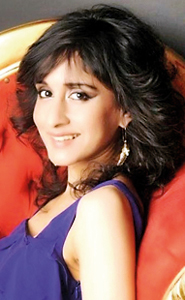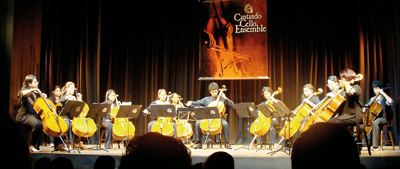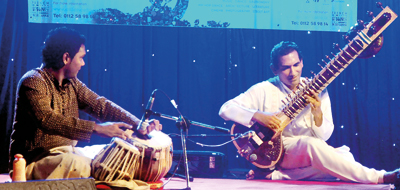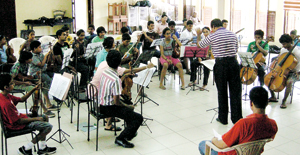The golden-haired princess of cello
Just when a name or an event should have receded to a distant corner of the memory a reminder flashes and it all comes rushing back. The other day we picked up a collection of classical recordings and popped in a disc and Beethoven’s “Ghost” Trio materialised and filled the room. (The work is named for its other-worldly slow movement.)
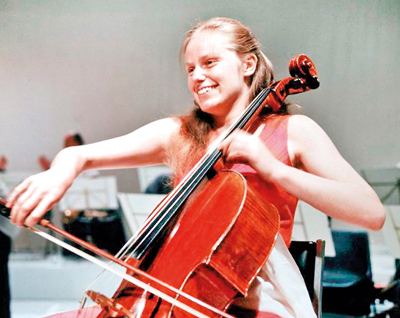
British cellist Jacqueline du Pre, 1945-1987 Photo: Gramophone.co.uk
Of the three musicians playing – Daniel Barenboim, piano, Pinchas Zukerman, violin, and Jacqueline de Pre, cello – two are living, one is no more – a “geist”, or ghost, if you like. Four years after the musicians recorded the complete Beethoven Piano Trios, when Jacqueline du Pre was at the peak of her career, the cellist was diagnosed with multiple sclerosis. Her international concert-giving ended in 1973, when she was 28. She died on October 19, 1987, at the age of 42.
The first time this same recording of the Ghost Trio, and the other 11 Beethoven Piano Trios, sounded in the house was in 1971.
The Barenboim-Zukerman-du Pre performances were fresh and youthful, and the performers fresh, young and full of the joy of life. Zukerman was 21 years old, du Pre 24, Barenboim 27. All three musicians were at significant stages in their careers in the late 60s. They were the jeunesse doree of the classical music world. Added to all this was the media excitement surrounding Daniel Barenboim and Jacqueline du Pre. The musicians’ romance and marriage was the talk of the time.
The couple had met on New Year’s Eve 1966, and six months later, to the surprise and annoyance of many, they abruptly dropped all their concert engagements in Europe to fly to Israel. They arrived just one week before the Six-Day War broke out, and were married five days after the war ended, on June 15, in the midst of Israel’s victory euphoria. Du Pre’s conversion to Judaism and the wedding ceremony took place in one day. The precipitate marriage shocked the Jewish community, but Israel had already given its newly adopted daughter a warm welcoming embrace. Du Pre and Barenboim were giving concert after concert in Israel’s honour. Overnight the couple became world news.
Here was romance, glamour, excitement and intense music-making during a historic moment. And at the centre of the excitement was the beautiful Englishwoman with an uncommon French name, an engaging smile, hair like flowing champagne, an extraordinary musical talent, and always hugging a manly Stradivarius cello.
It was easy to fall under the Jacqueline du Pre spell. We listened to every recording of hers we could lay our hands on, from her legendary 1966 performance of the Elgar Cello Concerto, under conductor Sir John Barbirolli, to the five Beethoven Cello Sonatas, with Stephen Bishop at the piano.
Coming after the higher pitched, more readily assimilated Beethoven Violin Sonatas, which were background music in the house, the Cello Sonatas took a little getting used to; we confessed our resistance to the music critic Elmer de Haan, who told us to persist: “This is beautiful music, you should go back to it. Keep listening.” We did, and gradually yielded to the works’ power.
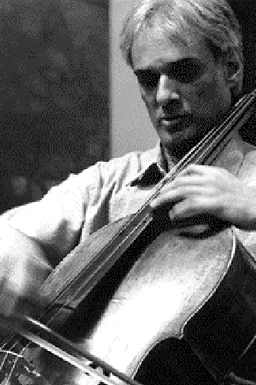
Rohan de Saram. Photo: thepharostrust.org
Last week, on October 19, the 25th anniversary of Jacqueline du Pre’s death, we listened to all five of the Beethoven Cello Sonatas, recorded by du Pre and husband Daniel Barenboim. The cello is a deeply plaintive music instrument, and on that day the cello in du Pre’s hands seemed to speak with an especially poignant voice.
The image of the golden-haired lady with the cello comes back in another setting, another context. In 1970, in a different part of the world, enjoying new artistic experiences, we attended a concert given by the Chicago Symphony Orchestra, at Orchestra Hall, on South Michigan Avenue.
The soloist was Jacqueline du Pre. It was a concert we had been looking forward to with heightened expectations. She played the Dvorak Cello Concerto, the grandest work in the cello concerto repertory. We had heard the Dvorak some years earlier, back home, with Paul Olefsky as soloist and the Symphony Orchestra of Sri Lanka, and we heard the concerto’s first movement played by Sri Lankan cellist Rohan de Saram, who performed the single movement as an encore after playing the Schumann Concerto with the same orchestra.
(Incidentally, Rohan de Saram was the first winner of the now famous Guilhermina Suggia Award, a scholarship given to exceptionally gifted young cellists; Jacqueline du Pre was a subsequent winner of the award.)
Details of the du Pre performance with the Chicago Symphony have long faded from memory, but we remember our initial disappointment that the solo cello’s voice was not speaking out as loud and distinctively as we had expected. It sounded a bit lost at times in the thick of the orchestral sounds. Of course, a live concert and a recorded concert are two very different things. At a live concert, you sit in a spacious hall and at a distance from the soloist. In studio recordings, the recording equipment is placed inches from the soloist. But just to have been there in the audience in Orchestra Hall that afternoon in 1970 was an honour.
We kept following the trajectory of du Pre’s career, but noticed after some time that her name was appearing less frequently in concert programmes.
Where was she, the princess of the classical music world who was on her way to being queen?
The news that du Pre had given up concerts because she was stricken with a debilitating illness was a shock to the music world. This had to be the cruellest blow ever dealt to a musician of that stature, and at her age; she was in her late twenties.
Photographs of du Pre taken during her years of decline show a plump-cheeked, bravely smiling woman. One of the most poignant is that of the musician in a wheelchair, holding on to a cello, as an older woman (her mother?) looks on encouragingly. It is the poignant image of a musician not ready yet to say goodbye to her beloved instrument.
Follow @timesonlinelk
comments powered by Disqus























